Homeless kittens: is it possible to take them to the apartment and how to domesticate?
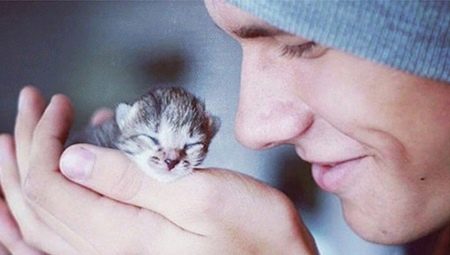
Not all cats were lucky enough to be born in a warm and comfortable home. Some moustached were less fortunate, and for one reason or another they ended up on the street. This happens constantly with animals of different ages. The reasons for this are a great many - from human inhumanity to unpleasant accidents.
Today we will talk about whether it is possible to take homeless kittens home, and also find out how to help them.
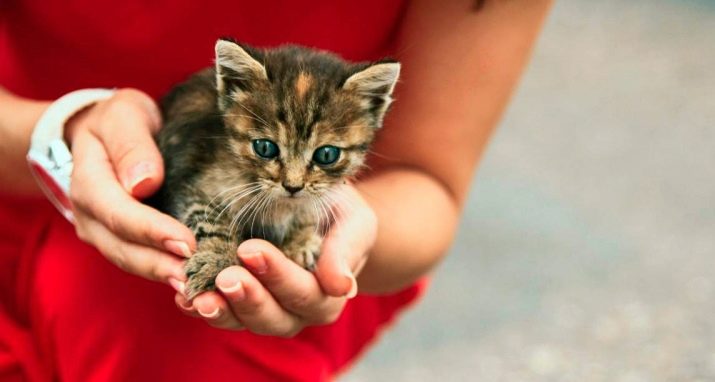
Features
Yard cats are found on the streets very often. Initially, such individuals were not subjected to breeding. If people interfered in the process of breeding animals, they usually chose useful animals, since cats have long been used as mouse hunters. A little later, noble persons began to appreciate aesthetic qualities in cats.
The main feature of domestic cats is that they have a non-standard genotype. Very often they can be an example of a combination of a large number of different breeds. That is why outbred individuals can have many different colors. Cats also vary in size, length, coat quality and other basic characteristics. The nature of outbred individuals is also different - some cats demonstrate a meek disposition and absolute lack of conflict, while others more often show fighting qualities and are very aggressive.
It is difficult to say exactly why thoroughbred cats are better than purebred cats, since domestic animals grow less demanding and may well have a spectacular appearance.

An ordinary street cat is not necessarily a stern fighter who does not like to sit on arms. In fact, many domestic cats are big lovers of fondle and love their owners very much. The main thing is to properly grow and “educate” the bully and gain his trust. Often, outbred individuals picked from the street produce wonderful companion pets.
It should be noted that outbred domestic cats and cats will always have a wool coat. They are not hairless, as, for example, representatives of the sphinx breed. Outbred individuals most often find themselves on the street. If in the warm season they can well adapt to such conditions, then in winter not all animals survive. Cats find themselves on the street for a variety of reasons. Very often, such problems happen when a person is bored with a pet or irritates him for some reason (for example, it spoils the furniture).
Often on the street are unsterilized females, which subsequently give birth to the same homeless offspring.
Without human intervention, it is very difficult to survive a kitten on the street - there will not be those normal conditions in which it can grow up healthy and active. Even if he is thoroughbred and unpretentious in leaving, the street will still pose a serious danger to him.
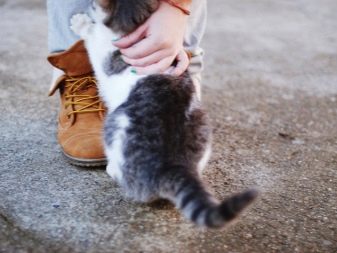

Character
The nature and disposition of homeless and outbred mustachios can be discussed forever. These animals are very different.
There are very friendly and sociable, and arrogant pets who do not need a human company.
In most cases, outbred mustachios behave simply and unpretentiously. They rarely behave aggressively, especially without reason.


The pros and cons of animals
Kittens that do not belong to any known breed are very common. Often, real luxurious beauties grow out of them. A good outcome for these animals can be expected if a good person appears in their life. It is worth considering in detail what are the main pros and cons of outbred cats that do not have a roof over their heads. First, we will analyze the positive qualities of outbred domestic kittens.
- The main advantage of such cats is their strong immune system. These animals live longer than purebreds, because, being in natural conditions, they have become practically immune to most common infectious diseases. These kittens and adult cats have a very strong immunity. In addition, breeding activity certainly suppresses the protective functions of the body, with outbred individuals such problems do not arise.
- The yard cat will be able to freely find for himself a gorgeous thoroughbred "groom" (or rather, the owner will be able to choose any cat he likes for his pet). The offspring in this case will also be a surprise for the owner - what kittens will be is impossible to guess.
- The undoubted advantage of outbred domestic cats and cats is their character. As a rule, such animals behave calmly, are friendly and quick-witted. Mind they do not occupy. A stupid animal will not survive on the street, so the yard moustached have a good intellect. In addition, many outbred kittens feel gratitude to the person who sheltered them, become attached to him, and try to demonstrate their love more often.
- Outbred cats have a highly developed hunter instinct. Thanks to this, they can easily catch mice and even rats. Such qualities are sought in seals by many owners of cottages and private homes.
- Outbred cats are distinguished by their omnivorousness and independence. They easily go for a walk themselves when they need it, and with the same success they return home, having walked in plenty. In food, the domestic mustachioed is absolutely undemanding.
- Despite the fact that such pussies do not belong to any breed, special exhibitions are still held for them anyway, where the exterior data of animals and their level of grooming are evaluated. This is a great opportunity for the owner to demonstrate his pet in all its glory.
- Agility and smart domestic cats - these are their serious advantages over thoroughbred individuals.
- Another important advantage of outbred cats is their cost. To make such a faithful and intelligent friend, you do not have to spend large sums. It is enough to pick a kitten from the street - this is a noble thing.

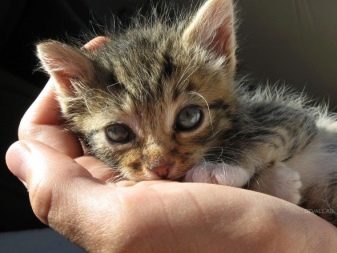
As you can see, outbred animals picked up from the street have a lot of positive qualities. However, they have their own weaknesses. Get acquainted with them.
- Such animals are hypersensitive. They can very painfully react even to the slightest changes that occur in the house. A cause for concern may be too noisy neighbors or repairs.
- A business with such pets cannot be built. Many people get cats only for further earnings. If the animal does not belong to a particular breed, its offspring will not cost anything.
Yard cats can hardly stand loneliness. They feel bad without a host, so they should not be left alone at home for a long time. A sad and bored cat may have a fur coat and appetite. Most often, similar problems are faced by apartment animals that do not go outside.

How to help kittens?
Homeless kittens are not uncommon. The life of these small animals is in serious danger, especially if the yard is facing a harsh winter. If the kitten is able to live in the conditions of the city, it will be doomed in summer cottages. If you have met a homely but clearly lost kitten, then the best thing you can do for it is to find the owners. Perhaps they, too, have long been looking for their pet and will be very happy if you return the cat. There are a lot of ways to do this - from posting announcements or word of mouth to leaflets stuck on poles.
If you picked up an animal that is purebred from the street, you can contact the special clubs of animal lovers in your city. Perhaps there is some information about the lost cats, and they will help you find the owner. If you could not find it, you will need to decide what to do next.
Think about whether you have the opportunity to leave the animal at home? If not, then you should seek help from all your friends and relatives. You can ask for help at a veterinary clinic. Post ads on all possible forums and sites.
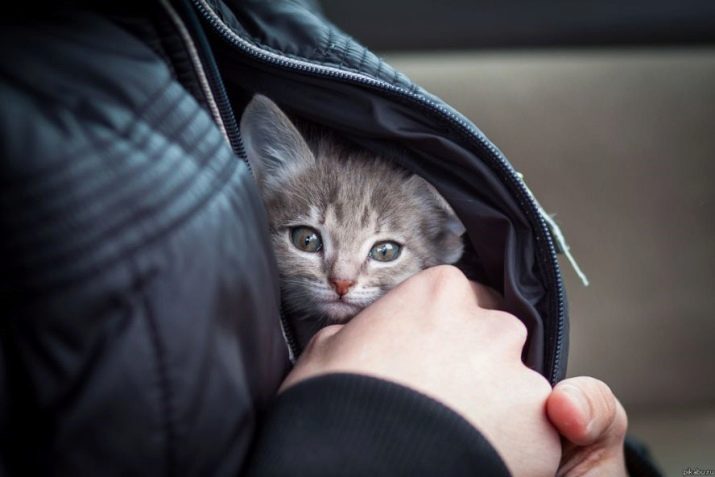
It is advisable to visit a veterinary clinic with a selected pet, especially if the animal has obvious health problems. A good solution is to contact the volunteers of your city or go to an animal shelter.
If there is such an opportunity, pay for volunteer overexposure of a cat. This is a more deliberate and kind step on your part, rather than quickly giving the animal to anyone to get rid of it as soon as possible.
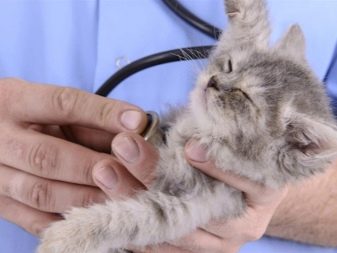

Should I take home?
It’s up to you to pass the selected kitten into good hands or leave it to yourself. If there is an opportunity to take the baby for yourself, then first you need to visit a veterinarian with him. Prepare money for admission and medication. In addition, you need to be careful in the following cases:
- wool has bald spots, ulcers, wounds, and running insects;
- if there is discharge from the nose and eyes;
- if dirty marks are visible under the tail.
Such problems will indicate the presence of a particular disease.


If you have other animals at home, then you will definitely need to isolate them from the untreated new household so that everyone does not get sick. It is also necessary to stock up on such medicines:
- anthelmintic drugs;
- special shampoo and flea remedy.
Buy for your baby everything you need - a tray and a bowl, a brush for combing wool. You must immediately decide whether you are ready to take on all of the above operations. If you don’t have any opportunities to keep the kitten at home or certain circumstances impede this, it’s better to attach the baby to another family but in no case do not need to throw it. If you are ready to engage in a new friend, then you should leave it to yourself. The animal will certainly be immensely grateful to you.

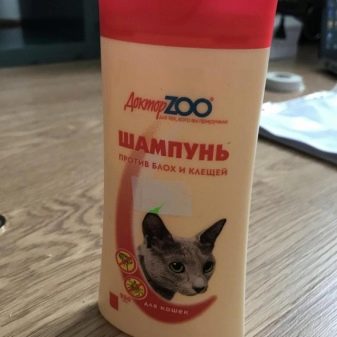
How to train a cat to an apartment?
Many people who have picked up abandoned kittens from the street are interested in one very important question: how to properly accustom a new friend to apartment conditions? In fact, there is nothing complicated here. The main thing is to consider some important points.
- First of all, in the new house you should not scare the baby and inspire him with a sense of fear. At first, try not to make too much noise or scream. Do not hit the kitten for wrongdoing. Even punishments must be gentle, otherwise the animal will be in great stress.
- If the baby hid somewhere and does not want to go out, do not pull him out of the shelter. Give him time to adapt. Soon he will stop hiding.
- No need to give pets too much extra attention. Let the kitten take the initiative.
- Do not grab the baby, do not pick up until he is completely ready for this. Give the kitten time to adapt.
- At first, try not to collect too large and noisy companies at home. In such an environment, the selected kitten will experience severe stress, it will be difficult to domesticate it.
- Choose a free and affordable place to put there a drinking bowl and a feeder for a kitten. Feed your baby portion and hourly. So the animal will be more comfortable.
- Do not forget to put the tray with the filler. He should not have too high sides, otherwise the kitten will be uncomfortable to use it. Teach your baby to him. Put it in the tray immediately after eating, follow the reaction.
- If the baby urinated in the wrong place, do not rush to scold him. Take a napkin, dip it in a puddle and put it in the tray. Then put the kitten there. Due to smells, he will understand where to go to the toilet. You may need to repeat the operation.
- Put a claw point at home so that the baby can sharpen claws on it. Show the beast this thing.
- Try not to leave the kitten alone for a long time. It is very difficult for selected animals to remain alone with themselves.
- If the foundling has approached you, gently stroke it. At first, you don’t have to squeeze the baby much. First, let it be a little “gargle.”
- Some time after adaptation with a kitten, one must begin to play. But games should not scare him. You should not chase a kitten or give him noisy toys. Such things will cause the animal extra stress.
If you comply with all these conditions, the animal will quickly get used to the apartment and will trust you. The main thing is not to be too intrusive and tough master for a small outbred kitten. Be tolerant.
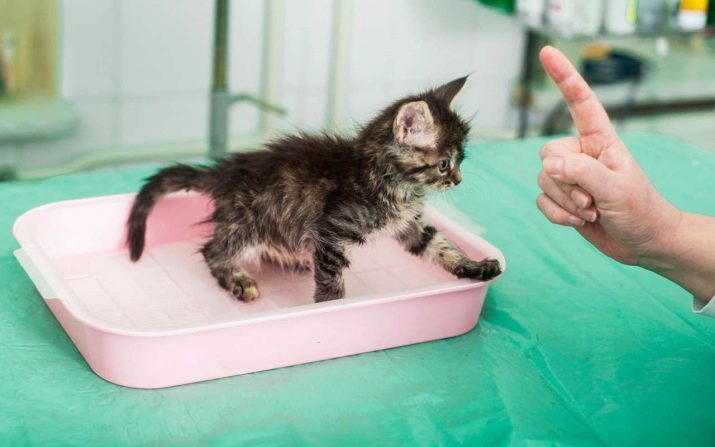
More information on how to act if you find a homeless kitten is described in the video below.

































